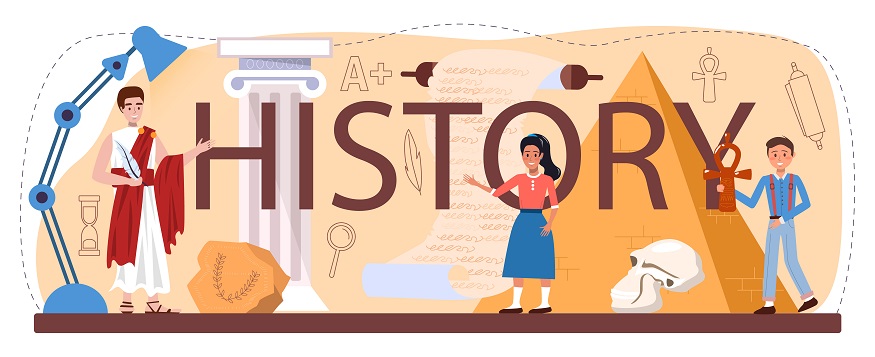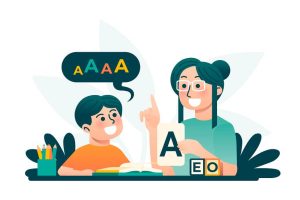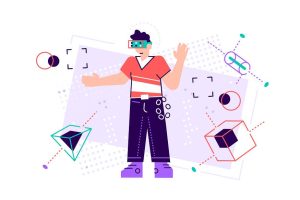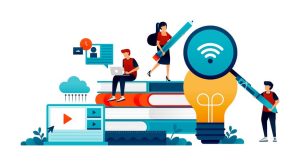The Evolution of the Education System: Unveil the History of Education

The study of history has always been part of school curriculums. But have you ever wondered what is the history of education itself? It must have one, a fascinating one!
In this blog, let’s look into the deep significance of the history of education and its evolution. Let’s also learn the scope for the future! Let’s go!
The History of Education
Education, in its broadest sense, has been an integral part of human societies since the dawn of civilization. The earliest forms of education were likely informal that focused on the transmission of cultural traditions, moral values, and practical skills from one generation to the next. In ancient civilisations like Egypt and Mesopotamia, education began to take a more structured form, often reserved for the elite and centered around topics like mathematics, astronomy, and writing.
The Greeks, especially in Athens, revolutionised education by introducing a more liberal and broad-based curriculum. This included philosophy, rhetoric, and physical education. The Roman education system, while heavily influenced by the Greeks, placed a greater emphasis on law and practical subjects like agriculture and engineering.
During the Middle Ages, the church became the primary custodian of education, with monasteries and later cathedral schools. They played the main role in preserving and imparting knowledge. The focus was primarily on religious studies, but subjects like logic, grammar, and, in some places, arithmetic were also taught.
But, the Renaissance period witnessed a rebirth of learning, with a renewed interest in the classics of Greek and Roman literature and philosophy. This period saw the emergence of the concept of humanism, which placed a high value on human potential and achievements. The Industrial Revolution of the 18th and 19th centuries brought about significant changes in education. The need for a literate and educated workforce led to the establishment of more public schools and a gradual shift towards universal education. This era also saw the rise of the concept of compulsory education. In the 20th century, educational systems worldwide underwent massive transformations to meet the demands of an increasingly complex and technologically advanced society. Progressive education movements emphasised experiential learning, critical thinking, and the development of democratic values.
Importance of the History of Education
Understanding the history of education is crucial for several reasons.
- It provides context for our current educational practices and policies. By learning about the successes and failures of the past, educators and policymakers of institutions can make decisions about how to shape the future of education.
- The history of education reflects broader social, economic, and cultural trends. For instance, the shift towards universal education during the Industrial Revolution was closely tied to societal changes brought about by industrialisation.
- Studying the history of education can inspire and motivate current educators. Learning about pioneering educators and their innovative approaches to teaching and learning can provide valuable insights and ideas.
Evolution of Educational Systems: The Change
Historically, education began as a simple transmission of cultural knowledge and skills. In ancient civilizations, it was primarily the elite who received education and it was often focused on rhetoric, philosophy, and physical training.
With the advent of formal schools in ancient Greece and the establishment of institutions like the University of Al-Azhar in the 10th century, education began to take a more structured form.
The Renaissance period marked a significant shift that brought concepts like humanism and the arts. This era laid the groundwork for modern education, with its focus on critical thinking and empirical evidence. The Industrial Revolution further altered the educational landscape, as the need for a skilled workforce led to the establishment of public schooling systems. This period saw a shift from agrarian-based education to one focused on science, mathematics, and technology, reflecting the needs of an industrializing world.
In the 20th century, the proliferation of compulsory education laws and the increasing recognition of education as a human right dramatically increased literacy rates and educational access worldwide. The post-World War II era, in particular, witnessed a significant expansion in higher education, driven by the GI Bill in the United States and similar initiatives elsewhere.
The late 20th and early 21st centuries have seen the digital revolution profoundly impact educational systems. The internet and digital technologies have democratized access to information and learning resources, transcending geographical boundaries. Online learning platforms, virtual classrooms, and e-learning tools have become integral components of modern education, catering to diverse learning styles and needs.
Future Perspectives to Look for
As we look to the future, the landscape of education, technological advancements, particularly in AI and machine learning, are expected to play a significant role in personalized education. These technologies could enable adaptive learning systems that design content to individual students’ needs, pacing, and learning styles.
The future may also see a more significant integration of interdisciplinary studies, as the boundaries between different fields of study become increasingly blurred. This approach would encourage holistic learning across various domains.
Sustainability and global citizenship are likely to become central themes in education. As the world grapples with climate change and globalization, educating students about sustainable practices and global interconnectivity will become increasingly important.
The history of education, much like history itself, is a rich tapestry of events, ideas, and innovations that have shaped the world we live in. Understanding this history is essential, not only for appreciating our current educational practices but also for guiding future developments. The future of education promises to be as dynamic and multifaceted as its past. Educational systems will continue to evolve and provide meaningful, relevant education to learners of all ages.
At Billabong High School, we emphasise the holistic development of kids rather than providing only bookish knowledge. To learn more about our curriculum, contact us today!








